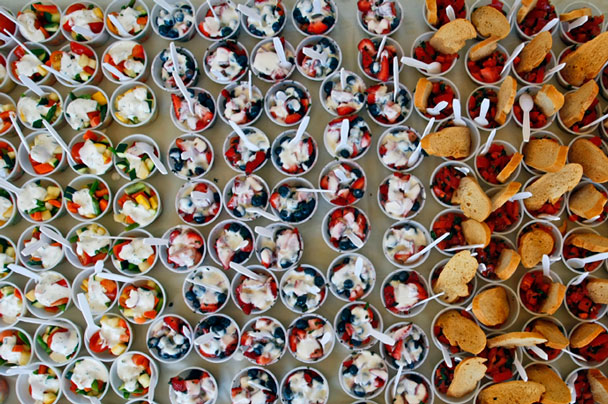Sometime in the very early ’90s, when I was a teenager, I walked into a Taco Bell in southeastern Virginia, stood in line patiently, and when I reached the cashier, explained the situation. “Hi,” I began, my tone of voice perfectly polite. “I came through the drive-through about 45 minutes ago, and when I got home I realized you guys had left out one beef soft taco.”
The cashier turned away to find a manager—to whom I re-explained the situation. I was ready with answers to any questions he might have. No, sir, I wasn’t driving—I’d been in the backseat, so I hadn’t seen who was working the drive-through window. Sorry, I didn’t have the receipt; I wasn’t the one who paid.
But the manager asked no questions. Instead, he put in an order for one beef soft taco, placed it in a bag, and handed it over. “Sorry about that,” he said.
“Oh, don’t worry,” I said. “Thanks!” Then I walked out, got into my 1986 Toyota Tercel loaded with friends, and drove down the highway—to the next Arby’s or Burger King or McDonald’s or whatever—and made the case again, and again, and… Soft tacos piled up next to cheeseburgers and French fries, and eventually we each ate our fill.
I’m not exactly proud of this scam, but at least it was minor-league and short-lived. In the two years between getting my driver’s license and going to college, I probably played this game only four or five times, when, between me and my friends, our wallets were as empty as our bellies. In fact, it all came to an end the day I persuaded a McDonald’s manager to hand over an entire 20-piece box of Chicken McNuggets. How could he believe his employees had forgotten that? I wondered. Maybe he just didn’t care; maybe it was simply less hassle to give the food away than to play detective. And that’s when I also realized I’d never be able to top that score. My scamming days were over.
These early escapades, however, left me with a taste for free food—that most delicious of delicacies. And over the years, I’ve come to recognize it’s a taste that just about everyone eventually develops. Think of how many office meetings you’ve gone to because of the free sandwich spread, or the late nights you agreed to work because the boss would comp some pizzas. Would you have done the same if you’d instead been offered $5 or $10—about the cost, per head, of the food? Not me—I’d probably pay $5 or $10 to skip the meeting or go home early. But in the face of a free catered meal, I’m a pushover, a workaholic for a cookie.
Surely this is because middle-class American kids like me—and maybe you—learn from the start that food and money are deeply intertwined. On the upside, put a couple of quarters in a vending machine, and out pops a Sprite or a pack of Bugles. On the flipside, it’s Eat your dinner—there are kids out there whose parents can’t afford such nice meals. We’re having leftovers tonight, don’t waste a morsel. The message is clear: Food has a value that’s both monetary and moral.
Alternatives to this system are relatively few. You can grow your own ingredients—if you have the time, the land, and the expertise. Or you can Dumpster-dive—if you have the stomach for it—or steal or scam. That’s about it.
No wonder, then, that Free Cone Day at Baskin-Robbins draws mobs of Rocky Road freeloaders, or that “Free soda!” became a popular perk at Internet companies in the boom days of the ’90s. (Now, of course, elaborate food perks are standard in the tech industry.) I once worked at a company that installed a Lavazza espresso maker in the office—an utter joy that darkened once my co-workers and I realized the company was slow to restock the precious supply of pods. At first, we’d grab a few extra to tide us over during fallow periods, but pretty soon, whenever a new shipment would arrive, we’d hoard the pods, slipping them into desk drawers or purses and pretending we had none left while sipping long-pulled shots from paper cups.



 Pinterest
Pinterest


